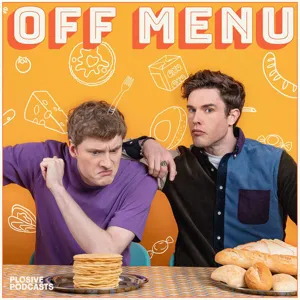Podcast Summary
Interesting facts about racing and affordability: Mint Mobile offers an affordable unlimited plan for $15 a month and PlushCare provides online access to physicians who can prescribe weight loss medications. Women tend to run slower than men in shorter races but faster in longer races.
Mint Mobile has lowered the price of their unlimited plan to $15 a month, making it an affordable option for those looking to switch. Additionally, PlushCare offers online access to board certified physicians who can prescribe weight loss medications for those who qualify. Now, for an interesting fact, it's a common assumption that men run faster than women. However, according to the comedy panel show QI, this isn't always the case. In shorter races, men tend to run faster than women, but the difference diminishes as the race length increases. In marathons, men run about 10% faster than women, but for races over 195 miles, women typically run faster times. This may be due to various physiological and biological differences between men and women. However, it's important to note that this information was presented on a comedy panel show and should be taken with a grain of salt. To confirm the accuracy of this claim, I spoke with Lucy Procter, a faster runner than most of us, who once recorded herself running a half marathon to debunk common running myths. Stay tuned to find out what she discovered.
Gender gap in ultra running: Narrowing in finish times but not in world records: Despite women potentially outpacing men in ultra marathons based on average finish times, men consistently outperform women in world records due to factors like self-selection and resources.
While the data from a 2020 report suggests that the gender gap in ultra running races narrows as the races get longer, with women potentially outpacing men in races over 195 miles based on average finish times, this trend does not hold true when looking at world records. The report, published by the International Association of Ultra Runners and Run Repeat, analyzed data from over 15,000 ultra marathons dating back to 1996. The data showed that the difference in average pace between men and women decreases with longer races, with men being 11% faster in marathons and only 0.3% faster in races over 195 miles. However, when examining world records, men consistently outperform women in ultra distances. Dr. Guillaume Mier, a professor of exercise physiology and ultra marathon runner, explained that this discrepancy could be due to various factors, including the self-selection of elite runners and differences in training and resources. Overall, while the data suggests that the gender gap in ultra running may be closing, it's essential to consider both the average finish times and world records to gain a complete understanding of the issue.
Gender difference in ultra-long distance races: Women run faster in common races, but fewer participate in ultra-long races. Those who do, are more serious and better prepared.
While men hold the world record for the longest distance covered in a 24-hour race, women tend to run faster over the same distance in shorter, more common races like marathons. However, the number of women participating in ultra-long distance races, such as those over 195 miles, is significantly smaller than that of men. Those women who do participate in these events are found to be more serious and better prepared than their male counterparts. This disparity in participation and preparation levels contributes to the difference in performance between genders in ultra-long distance races.
Gender divide in ultra marathons: Women outperforming men?: Despite fewer women participating in ultra marathons, some excel and outperform men. Reasons for their success are unclear, but may be linked to the demands of the race.
The gender divide in ultra marathons, with women less likely to participate but sometimes outperforming men in these endurance races, is a complex issue. The researchers in the study compared averages of two different groups, one consisting of highly prepared and professional women, and the other of less prepared and less professional men. This comparison, as Dr. Miele pointed out, is problematic and can give a misleading impression. However, there are notable exceptions, such as British runner Jasmine Paris and American Camille Heron, who have won ultra marathons against men. The reasons for women's success in these races are not fully understood, but Dr. Nicholas Tiller, a senior researcher at UCLA Medical Center, suggests that the demands of the race may suit women better. Ultimately, the gender dynamics in ultra marathons highlight the importance of recognizing the unique challenges and strengths of both male and female athletes.
Gender Inequality in Ultra-Marathons Limits Comparisons: Despite women's potential to outperform men in ultra-marathons due to fatigue resistance and psychological robustness, gender inequality in these races makes it hard to compare their performance. Women are underrepresented in ultra-marathons, but they're closing the gap and winning races.
While women may outperform men in ultra-marathons due to factors like peripheral fatigue resistance and psychological robustness, the lack of gender equality in these races makes direct comparisons flawed. Women still make up a small percentage of the field in ultra-marathons, and until this changes, it's difficult to definitively say that women are faster than men in ultra-events. However, there is evidence that women are closing the gap and winning some races. Ultimately, the determinants of performance in ultra-marathons shift from maximal capacities and absolute strength to factors like fatigue resistance and robustness, and women have equal access to these traits.





